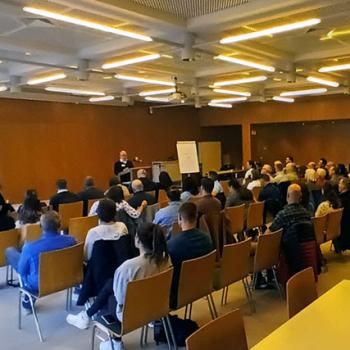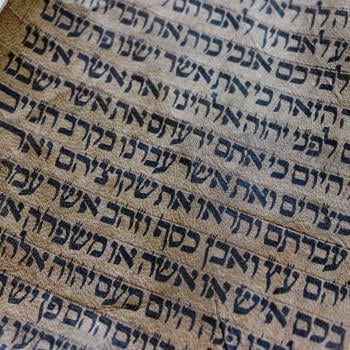If the Trinity is of such vital important to the faith and to the Christian life, what did the testimony of the patristic fathers have to say about it? This question is asked because it is a question asked by some skeptics of the Trinity. While the Faith is explained in a plain and direct manner in the first centuries, the substance of the mystery is rightly shown in the following centuries. The testimony of the church fathers regarding the Trinity has a definite influence on the doctrinal and liturgical life of the church. These influences continue today.
Types Of Church Fathers
The work of the early church fathers can be divided in what is called Anti-Nicene and Post-Nicene. The reason for these distinctions is because the Council of Nicea was a sort of dividing line. At Nicea the dogma of the Trinity was formally defined (Preuss 142). The first four centuries were crucial as dogma was not only defined, but even before then we see development and manifestation of the dogma in the liturgy (Garrigou-Lagrange Introduction).
At Mass there are two creeds that can be said after the homily. One is the Nicean creed, and the other is the Apostle creed.
The Apostles creed is only slightly older than its Nicean counterpart, but in it we profess the Trinity. Though it is made up of a few lines, it declares the divinity of all three persons of the Godhead.
This creed that is still professed today (Preuss 144). Regarding this Garrigou-Lagrange states, “according to the arrangement of the Apostles’ Creed is the Father, the Son, and the Holy Ghost and those things attributed to them in the order of salvation” (Garrigou-Lagrange Ch. 1).

Church Fathers And Trinitarian Formula
The creed itself is an extension of the sacrament of Baptism. In Baptism, one is immersed, or water is poured on the head three times in the name of each person of the Trinity.
The Trinitarian formula of baptism has biblical roots in such places as Matthew 28. However it was carried on into the liturgy by the writings of the Fathers. Tertullian, a second century Christian writer, stated that the Trinity itself is the substance of the New Testament (Garrigou-Lagrange Ch.1).
There is also evidence of Patristic testimony in the doxologies in the early church and those in use today. The origins of these doxologies have their roots in the Pauline epistles. These doxologies were carried on by the church fathers in their writings and prayers.
The prayer that we sometimes call the “Glory Be” (Gloria Patra) today, has very ancient Christian roots. Glory be to the Father, and to the Son, and to the Holy Spirit as it was in the beginning, is now, and ever shall be. World without end, amen.
This prayer reflected the publicly professed faith of the early Christians (Preuss 146). It is one of the basic prayers taught to children at an early age to teach them the dogma of the Trinity. It is one that links us today with great saints such as St. Justin Martyr, who also was familiar with this doxology (Preuss 146).
Confession Of The Martyrs
The doctrine of the Trinity is echoed in the confessions of the early martyrs. Patristic testimony celebrated these martyrs as heroes of the faith. In some cases the church fathers were among these martyrs. These martyrs are celebrated in the liturgy on various feast days throughout the liturgical calendar.
St. Polycarp was martyred in 166 AD, and before his martyrdom he gave glory to all three persons of the Trinity (Preuss 145). There were many others with St. Epipodeus and St. Euplus of Cantonia just to name a couple more.
These holy martyrs died for the Trinity because it was true. Just because the dogma had not been formally defined does not mean that it had not always been taught.
Trinitarian Quotes
For, in the name of God, the Father and Lord of the universe, and of our Saviour Jesus Christ, and of the Holy Spirit, they then receive the washing with water.-St. Justin Martyr
Since, also, there is but one unbegotten Being, God, even the Father; and one only-begotten Son, God, the Word and man; and one Comforter, the Spirit of truth; and also one preaching, and one faith, and one baptism.-St. Ignatius of Antioch
Thus, indeed, we expand the indivisible Unity into a Trinity; and again we contract the Trinity, which cannot be diminished, into a Unity.-St. Dionysius
Works Cited
Garrigou-Lagrange, Reginald. The Trinity and God the Creator. https://www.ewtn.com/library/THEOLOGY/TRINITY.HTM#05, accessed November 13, 2018.
Preuss, Arthur. The Divine Trinity. https://archive.org/details/divinetrinityad00pohlgoog, accessed August 12, 2020.

















